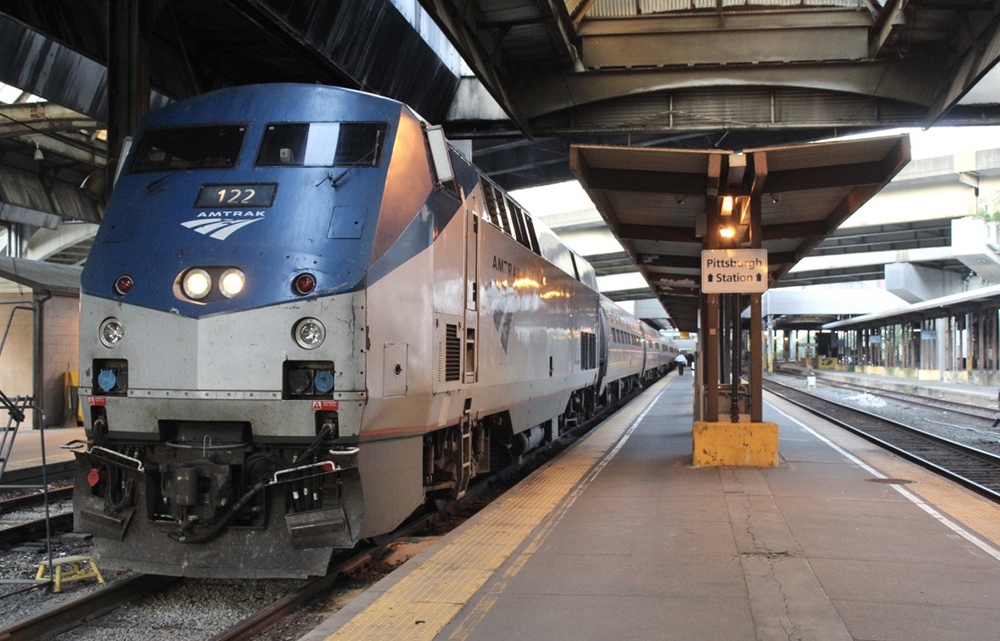
WASHINGTON — Prospective Amtrak board of directors nominee Robert Gleason made clear in his opening statement at a U.S. Senate Commerce Committee hearing today (May 13, 2025) that he is committed “to bringing better passenger rail service to small towns across America.”
At the same hearing, former Pan Am Railways president David Fink stressed his extensive railway industry background and commitment to safety as reasons he should be confirmed as the next administrator of the Federal Railway Administration.
A more complete picture of nominees’ priorities and knowledge usually emerges during questioning by lawmakers, and this hearing was no exception.
Gleason knowledge includes ridership experience
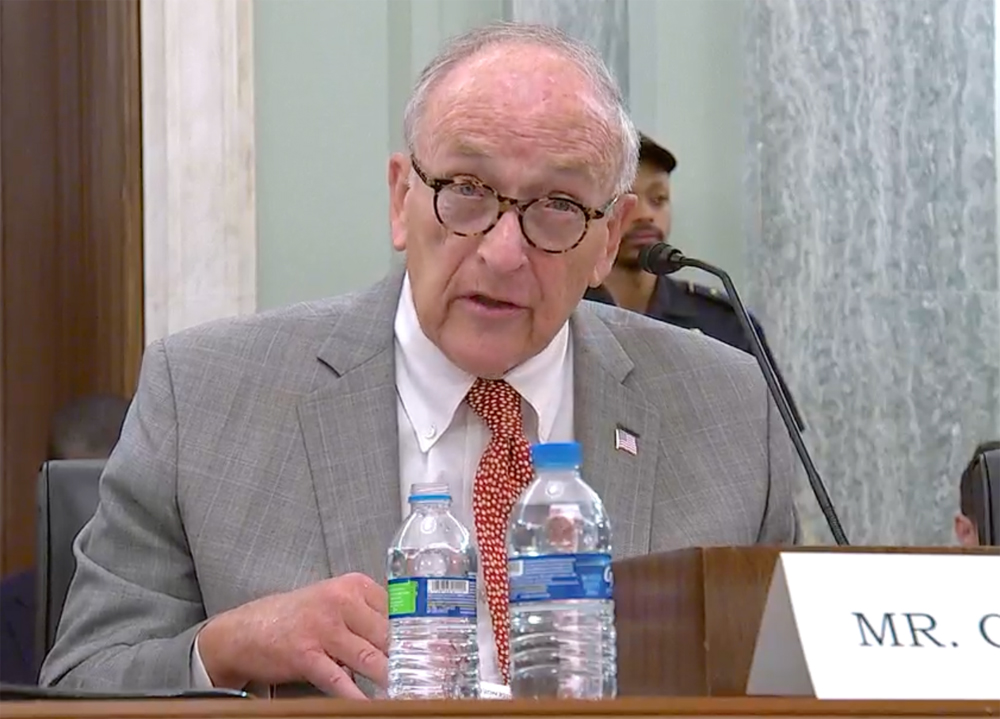
Gleason, who hails from the Johnstown, Pa., area and has actively supported a second Pennsylvanian round trip [see “Trump nominates Robert Gleason….,” News Wire, March 12, 2025] bemoaned the fact his city currently hosts only two Amtrak trains per day: one to Pittsburgh, and one to New York City.
A Republican, Gleason’s confirmation for the last vacant seat would tip the board’s majority toward that party. Gleason said he would “work diligently to improve and expand passenger rail … in a fiscally responsible manner” but declined to invoke any mention of “profitability” or “operating self-sufficiency,” goals many GOP lawmakers in the House of Representatives regularly demand. The company recently implied that thinking was a factor in its decision to eliminate 450 positions [see “Amtrak trims management …,” News Wire. May 7, 2025].
Rather than only offering perfunctory answers as hearing witnesses often do, Gleason talked about the trains he’s ridden such as the California Zephyr, Pacific Surfliner, Acela, and Auto Train. He also knew about the Borealis’ ridership success. He reminded Sen. Andy Kim (D-N.J.), “you provide the money,” adding, “I think Amtrak can be expanded a lot easier than building more highways. We need to look at other ways to fund this expansion. And more younger people are riding Amtrak today; they don’t have drivers’ licenses.” Gleason also assured Sen. John Fetterman (D-Pa.) that he fully supported extending Amtrak service to Reading, Pa.
Fink’s observations
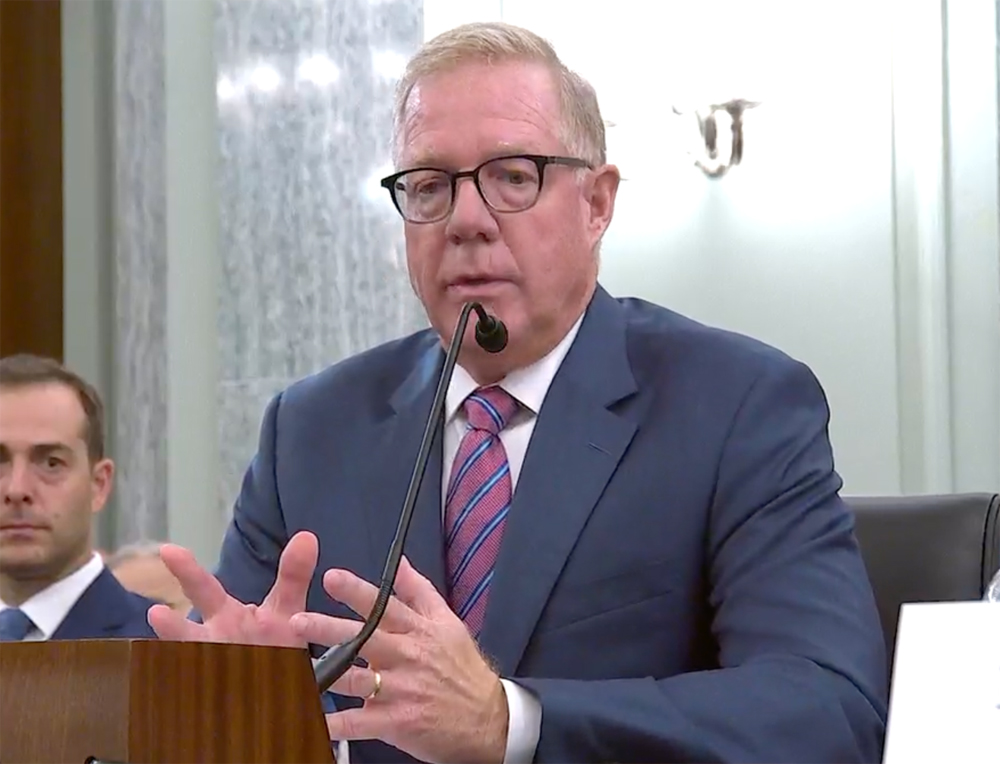
FRA nominee Fink didn’t seem as well versed in passenger issues. Although he told Kim he was aware of faulty pantographs as possibly responsible for Northeast Corridor reliability problems and said he had successfully worked with Amtrak on launching Maine’s Downeaster, Fink admitted to Sen. Jerry Moran (R-Kansas) that he didn’t know anything about the Corridor Identification and Development program, which the FRA administers.
Asked by Sen. Ben Ray Lujan (D-N.M.) about continued support of the Southwest Chief, which previous Amtrak management tried to truncate in 2018, Fink revealed he didn’t know where the train runs. To which Lujan suggested, “Before Senator Moran calls you into his office, I would encourage you to learn about the Southwest Chief. I’m telling you there will be a meeting — CEOs come in, so I hope we can find some commonality there.”
Throughout the hearing, Fink continued to get questions from Democratic lawmakers about safety deficiencies at Pan Am Railways when he was president, but he rebutted their assertions by repeatedly explaining his company’s participation in safety audits, disputing FRA findings, and noting that “poor Pan Am track” discussed prior to the CSX takeover referred to one segment in a wetlands area. “Our railroad was in great shape and CSX knew exactly what they were getting,” he said.
Fink also answered “yes” when asked by Sen. Ed Markey (D-Mass.) if he agreed with Transportation Secretary Sean Duffy’s position supporting two-person freight train crews.
A video of the nearly two-hour hearing, which also included questioning of nominees for two Commerce Department positions, is available here. On the recording, the hearing begins at the 18-minute, 45-second mark.






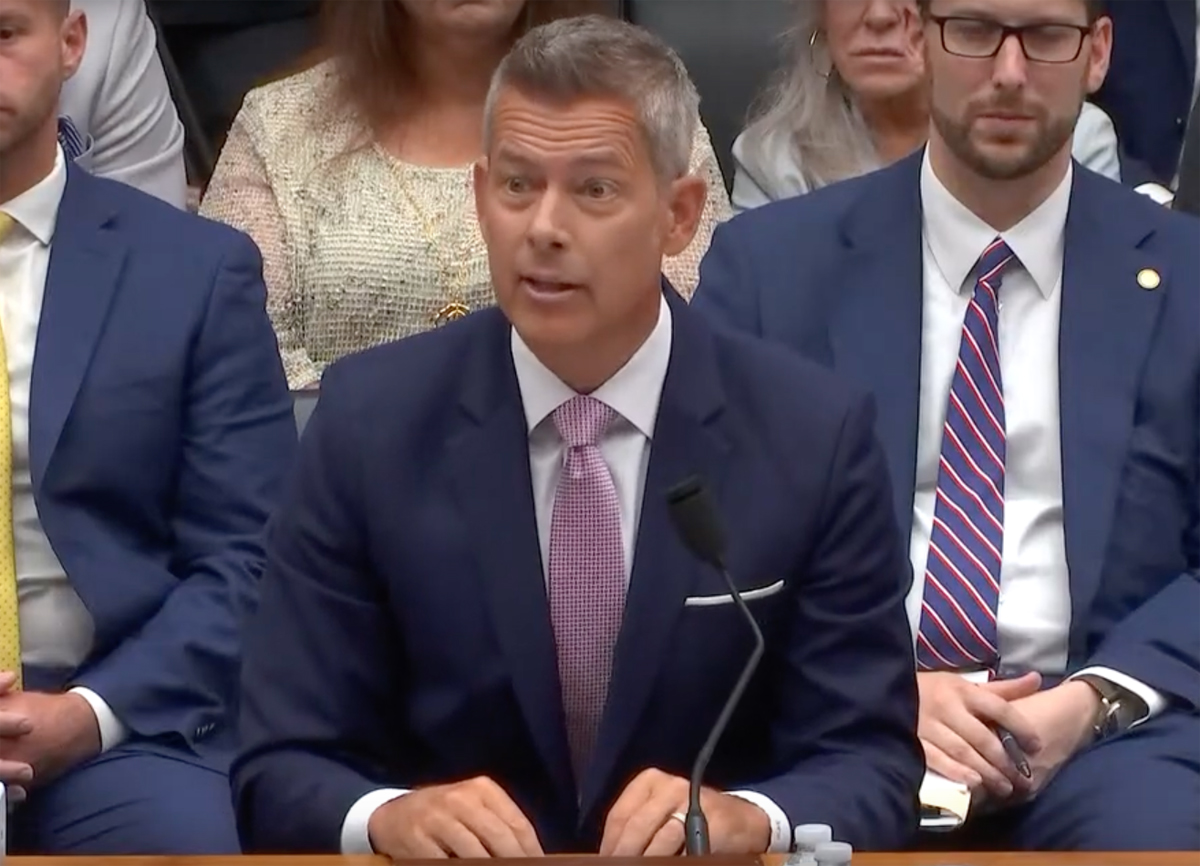
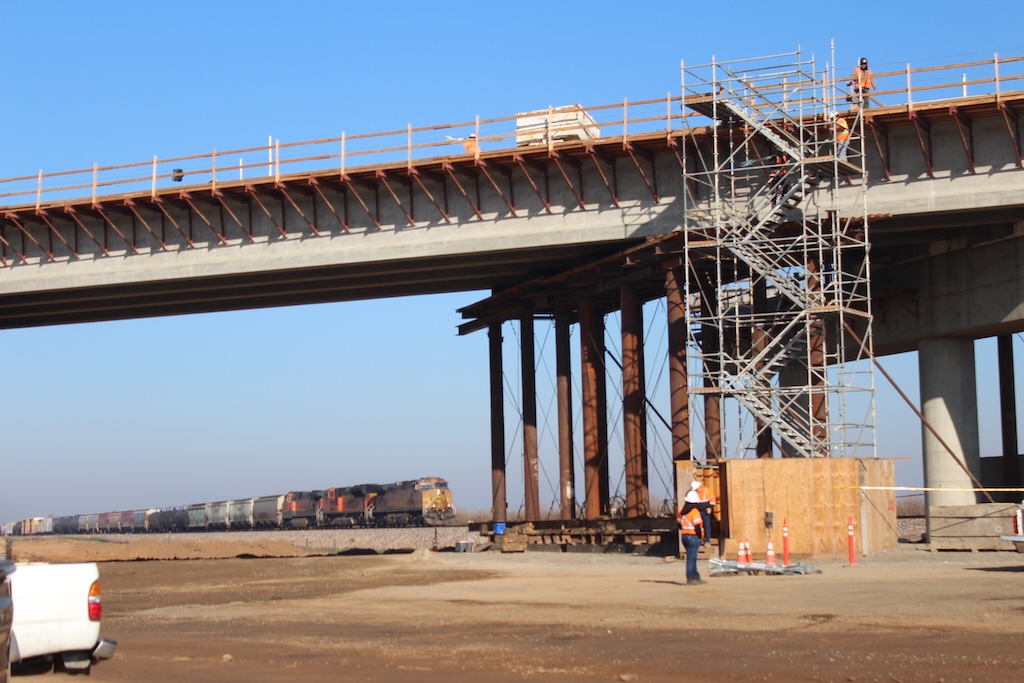
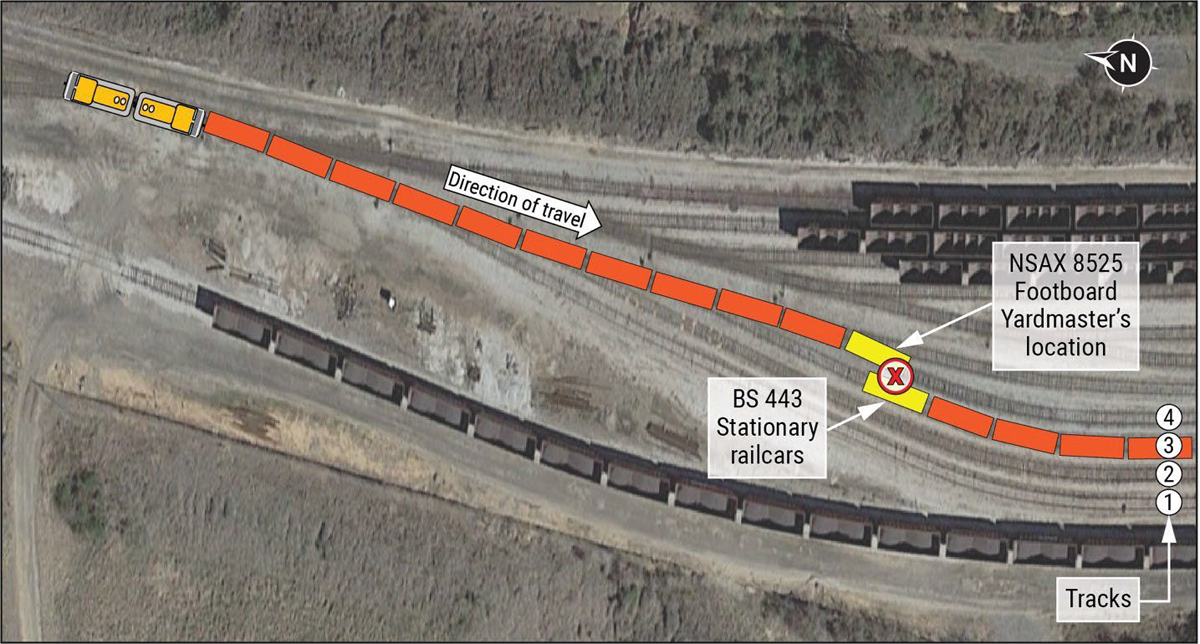
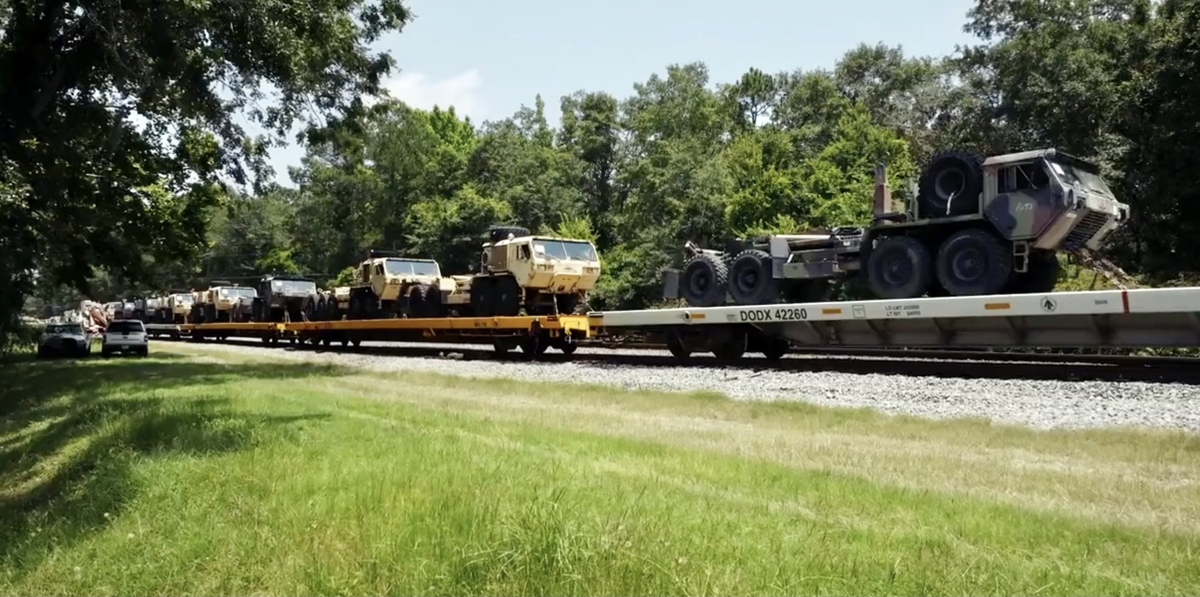




“Our railroad was in great shape and CSX knew exactly what they were getting,”, How he could say that with a straight face is beyond me. Pan Am was largely an antiquated run down 10 mph property anywhere that Amtrak, the MBTA,NS, or government didn’t pay for upgrades. There is no evidence to back his claims.